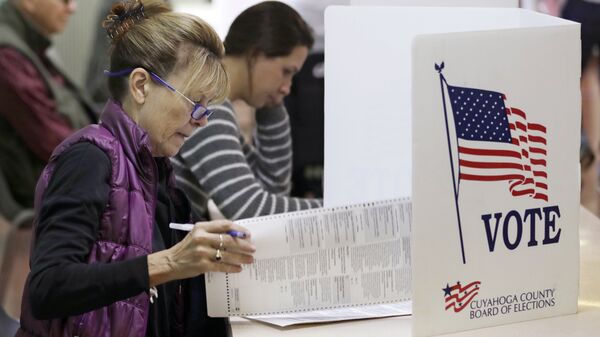Under the newly-passed Florida bill SB 7066, ex-felons must pay fines before their voting rights are restored under Florida's 2018 Amendment 4.
The text of the amendment, which received broad bipartisan support as well as the endorsement of 64.5% of Florida state residents in last year’s election, reads as follows: “This amendment restores the voting rights of Floridians with felony convictions after they complete all terms of their sentence including parole or probation. The amendment would not apply to those convicted of murder or sexual offenses, who would continue to be permanently barred from voting unless the Governor and Cabinet vote to restore their voting rights on a case by case basis.”
“So by some estimates, there are somewhere between 1.2 and 1.7 million people who have been rendered ineligible to vote as a result of their involvement in the criminal justice system,” Tampa organizer Donna Davis told By Any Means Necessary hosts Eugene Puryear and Sean Blackmon. “What Amendment 4 sought to do was re-enfranchise those folks in the aftermath of their incarceration by saying, ‘Now, you can have all of your right to vote back with a few exceptions.’ And so, two-thirds of the electorate in Florida voted to give folks back their voting rights once they had completed their sentence.”
“As can be expected, there was some pushback from the other side, because we know that these policies are enacted to disenfranchise voters. It’s a deliberate process,” Davis said. “The pushback came from the Florida state legislature.”
“Two-thirds of the proletariat in a state that went for [US President Donald] Trump in 2016 - it’s saying that all of the folks that voted for this are not just in one party. What that means is that there is across-the-board support for this amongst people in multiple groups across the state,” Davis noted.
According to Amendment 4 supporters, SB 7066 will disproportionately impact marginalized and lower-income communities.
Black people were particularly targeted under the previous system. An estimated 18% of black, voting-age Floridians had been disenfranchised under the previous system, according to the Sentencing Project, Sputnik reported.
Several groups have already sued over SB 7066. On Sunday, the American Civil Liberties Union of Florida filed a lawsuit stating that the new law creates "two classes of returning citizens: a group wealthy enough to afford their voting rights and another group who cannot afford to vote." The Southern Poverty Law Center, the Campaign Legal Center and Kelvin Jones, a black man who cannot afford to pay the fines and fees he owes, have all filed lawsuits as well. The cases will be heard by US District Court Judge Mark Walker.
“It’s going to end up in the hands of a judge. It could go beyond the Florida Supreme Court. I don’t think it’s going to be something that resolves itself in just a few months … He’s [DeSantis] taking a big risk [by establishing the new law] because the numbers say that people supported this [Amendment 4], and he won by a razor-thin margin … He’s taking a serious risk by disenfranchising folks who said, ‘Yes, this is what we want for Florida,’” Davis said.
“There’s just no way they [Florida elected officials] are just [going to] continue to vote in opposition to the electorate … as the electorate becomes younger and more progressive,” she predicted. “I don’t think this is going to change overnight; we’re going to continue to have this problem. But every year, we move the needle a little bit. At some point, I suspect somewhere between six and 10 years … there will be a new influx of younger, more progressive voters. And the tune is going to change.”




